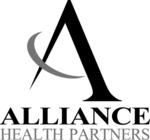The great TV classic ER helps teach armchair physicians to become amateur diagnosticians. He's in shock! She's got kidney stones! Rule-out pheochromocytoma! But sometimes a little knowledge can be a dangerous thing. You've learned somewhere - on the network news, in the Science section of The New
Read moreALLIANCE HEALTH PARTNERS
OPTIMA REHABILITATION
Colorado Springs MASSAGE
It has been documented that thoughts and emotions have a powerful influence over our physical health. There was an interesting study conducted at UCLA in the early 1990s where 14 professional actors were recruited to study the effects of emotion on the immune system. During the study, the actors were told which mood state they would be experiencing.
They then read the appropriate scenario, which was about 100 words long, and were told to create and experience a realistic mood by developing the scene and verbally and behaviorally acting it out while seated. Actors were encouraged to use their own personal memories to intensify the experience. Once the actors were in a particular emotional state, the researchers drew blood to measure any physical changes that may be associated with particular emotional states. What they found surprised everyone. Simply by shifting from one emotional state to another, the actors could stimulate or suppress their immune function. Subsequent studies have measured all kinds of physical changes that result from emotional states, such as changes in hormone levels, brain chemistry, blood sugar levels, even the ability to heal properly. In fact, the mind-body connection is so strong that an entire field of science has emerged called psychoneuroimmunology.
More and more scientific studies are published on a daily basis proving the idea that thoughts and emotions have a powerful influence over our physical health. This is one of the reasons why people are much more likely to get sick during job changes, holidays and other stressful times; or why people who are depressed have a much higher risk of developing cancer. How can emotions affect our immunity or resistance to disease? Research shows that the brain can release hormones and other chemicals that affect white blood cells and other parts of the immune system. Though the chemicals also have other functions, they are a link between our thoughts and our ability to resist diseases.For example, when people react to stresses with fear, their brains send a "danger" message to the body. Hormones are released to raise blood pressure and prepare muscles for quick action, as if to fight or flee from danger. The stress hormones also depress the disease-resistance system, and over time, can damage the brain, heart and digestive tract.Thoughts can cause physical abnormalities such as ulcers, indigestion, nervousness and high blood pressure. Thoughts can also depress the immune system, which leads to a wide variety of diseases. Whether a person experiences poor health, and how soon, depends on that person's heredity, environment, diet, and behavior.
An Australian study in the late 1970s showed that when one spouse dies, the other experiences a weakened immune system. This helps explain why grieving spouses have more diseases and a higher death rate than others of similar age. Other studies have shown that heart patients who are depressed have more heart problems than happier heart patients; depression was a better predictor of problems than physical measurements were.
Cancer is more common in people who suffer a major emotional loss, repress anger and feel helpless. Cancer patients who express their emotions rather than denying them seem to recover more often. The link between emotion and cancer is so strong that some psychological tests are better predictors of cancer than physical exams are. This does not mean that everyone who has cancer or some other disease has simply thought it upon himself. There are many factors involved in disease; even the best attitude is not going to prevent ill effects from genetic malfunctions and some chemical and biological hazards. A new study shows physical proof how one of those aspects - a strong and happy marriage - can be a boon to your health. According to the study, physical wounds take much longer to heal in marriages marred by hostility and conflict than those in which couples build a more pleasurable home life.
As our thoughts and emotions have such a powerful influence over our physical health, we must take proactive steps to regain our health through healthy thinking, relaxation, and positive affirmations. Explore this section for more on how to calm your mind and improve your health.
-
Shoulder Pain - Heart Attack or Rotator Cuff Injury?
Category: Newsletter Library, Injury Rehab & Prevention
-
Shouldering the Load
Category: Newsletter Library, Injury Rehab & Prevention
As with much in life that we take for granted, we are not usually concerned with the mechanisms of how our bodies work and how they do what they do. Such knowledge is not required for use of these magnificent machines that have been freely given to us. But just as a wise consumer will care for her or
Read more -
Strong Bones and Core Strengthening - Good Tips for a Healthy Lower Back
Category: Newsletter Library, Injury Rehab & Prevention
Strong bones are important for all of us, not only for the aging baby boomers about whom we're hearing so much lately. And, "strong bones" are much more than a marketing ploy cooked-up by the dairy industry and pharmaceutical companies. Bones are incredibly dynamic, constantly reshaping themselves
Read more -
Ten Tips for Smart Stretching
Category: Newsletter Library, Injury Rehab & Prevention
1. Why stretch? Stretching lengthens muscles and improves flexibility. Also, stretching the big leg muscles - the hamstrings, calves, and quads - simultaneously loosens and lengthens the muscles of your lower back. So, when you stretch, you're helping your back! 2. When to stretch? Recent exercise physiology
Read more -
Tennis, Anyone?
Category: Newsletter Library, Injury Rehab & Prevention
Repetitive stress injuries are typically very difficult to treat successfully. These injuries are the result of actions done repeatedly, frequently, and consistently over time. They've taken a long time to build up and, therefore, the healing process also requires a fair amount of time. Shin splints,
Read more -
The Common Core
Category: Newsletter Library, Injury Rehab & Prevention
Core strength is critical for everyday activities such as placing heavy grocery bags into the trunk of your automobile, carrying a gallon jug of milk from the refrigerator to the dining room table, and even walking to the mailbox. When your core strength is diminished, even bending over to pick up a
Read more -
The Top Shelf
Category: Newsletter Library, Injury Rehab & Prevention
Many adults begin to develop shoulder pain, even though they may not have sustained a specific injury. It's important to pay attention to such shoulder issues, as a healthy shoulder joint is the key to full function of the upper extremities. We all know at least one person whose ability to perform normal
Read more -
Viscoelasticity: The Hidden Ingredient
Category: Newsletter Library, Injury Rehab & Prevention
Most of us have experienced a painful bout of low back pain brought on by a seemingly innocuous movement such as bending over to pick up a pencil or a dropped set of keys. These painful episodes may last a couple of days or be more severe and last more than a week. We're left wondering, "What exactly
Read more -
When Bad Things Happen to Good Exercisers
Category: Newsletter Library, Injury Rehab & Prevention
"There I am," a very fit patient is saying, "out on my five-mile run, motoring my way up a steep incline. Suddenly, I feel a throbbing pain in the middle of my right shin. Oh, no, I think, not again." As things turned out, the patient recovered from the shin splints1 quickly, but he knew he'd dodged
Read more -
Whiplash - Getting Well Naturally
Category: Newsletter Library, Injury Rehab & Prevention
You're driving to work and stop for a red light. You're minding your own business and - bam! - your car rocks forward and backward, slammed in the rear by another car driven by some guy yakking on his cell phone. Or you're a passenger in a New York City taxi. The driver's cruising down Fifth Avenue when
Read more -
Your Own Personal Trainer
Category: Newsletter Library, Exercise & Fitness
Back in the day, there were no personal trainers. If you needed to learn how to exercise, you got a subscription to one of a few well-known "muscle magazines" and read several issues from cover to cover. Then you joined a "Y" and began to discreetly observe what was going in the weight room, trying to
Read more -
Your Double Helix
Category: Newsletter Library, Exercise & Fitness
Not everyone will admit this, but there's something magical about exercise. Your brain produces endorphins in response to vigorous exercise and you feel energized, alert, and alive. You derive tremendous satisfaction from doing something you said you'd do. You feel good about yourself all day long. Beyond
Read more -
Triple Axel
Category: Newsletter Library, Exercise & Fitness
Mao Asada, Silver Medalist in Ladies Figure Skating at the 2010 Winter Olympics, landed three triple axels in the competition, a feat no competitor had done before. There are no easy figure skating jumps, spins, or technical elements, but the triple axel is particularly difficult. This jump has many
Read more -
To Lift or Not to Lift?
Category: Newsletter Library, Exercise & Fitness
If a great Shakespearean protagonist had, anachronistically, joined a gym, his internal existential inquiry might have been, "To lift or not to lift?". Many centuries later, the identical inquiry, or controversy, persists. Joining a gym (health club) usually implies the new club member is going to engage
Read more -
The Power of Cross-Training
Category: Newsletter Library, Exercise & Fitness
Cross-training refers to a combination of different methods of exercise. Specifically, cross-training refers to the combination of strength training and cardiovascular training in your overall exercise program. Whether you're a 14-year-old just starting out on your first fitness program, or whether you're
Read more -
The Home Stretch
Category: Newsletter Library, Exercise & Fitness
Thanks to effective public health campaigns regarding healthy lifestyle choices, many people have incorporated regular, vigorous exercise, a nutritious diet, and getting sufficient rest in their daily routines. For many people, an additional important component of a healthy lifestyle is regular stretching. Regular
Read more
Locations
Find us on the map
3920 N Union Blvd, Ste 160
Colorado Springs, CO 80907, US
Office Hours
Our Regular Schedule
7:00 am - 7:00 pm
7:00 am - 7:00 pm
7:00 am - 7:00 pm
7:00 am - 4:00 pm
7:00 am - 6:00 pm
8:00 am - 12:00 pm
Closed

